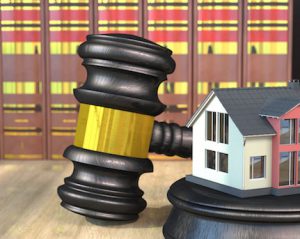Many residential developments (homes, condos and townhomes) have restrictive covenants which set out restrictions regarding the use of properties located in the development. Most restrictive covenants set forth the term of years that the restrictive covenants will be in effect. As set out below, such terms do not always apply to restrictive covenants that are also “use restrictions”.

Many Central Iowa developments (homes, condos and townhomes) have restrictive covenants
Chapter 614.24 of the Iowa Code was initially adopted in 1965 and provides for the termination of all “use restrictions” on a property after a period of 21 years. The term “use restrictions” has never been defined in the Code until the Legislature added an additional section of the Code in 2014. The Amendment states that “use restrictions” means a limitation or prohibition on the rights of the landowner to make use of the landowner’s real estate, including but not limited to limitations or prohibitions on commercial uses, rental use, parking and storage of recreational vehicles and their attachments, ownership of pets, outdoor domestic uses, construction and the use of accessory structures, building dimensions and colors, building construction materials, and landscaping. The section goes on to state that “use restrictions” do not apply to easements, agreements for sharing of costs, and obligations for real estate taxes, insurance premiums, maintenance, repairs, improvements and services and agreements for joint use and the maintenance of driveways, party walls, landscaping, fences, wells, roads, common areas, waterways or bodies of water.
As set forth above, only provisions of the restrictive covenants which constitute “use restrictions” will expire after a period of 21 years from the date of filing unless they expire earlier pursuant to the document. The fact that the restrictive covenants provide for a term of longer than 21 years or provide for the automatic renewal of the restrictive covenants will not have the effect of continuing the “use restrictions” contained in the restrictive covenants. The only way “use restrictions” can be extended is through the filing of a verified claim which is discussed below. However, the provisions of the restrictive covenants which do not constitute “use restrictions” are not terminated after 21 years. Some of the items which would not be terminated would include provisions regarding a homeowner’s association responsibility for provisions for maintenance of lots and common areas, provisions regarding annual and special assessments along with the provisions for a lien for nonpayment of the same, and for interest to be assessed for the nonpayment of the same. In addition, provisions regarding easements would also not be terminated.
Another exception for items that would not be terminated would be items which are prohibited by rules adopted by the homeowner’s association. For example, the association may adopt rules regarding parking of vehicles and such items would not be affected by the termination of the restrictive covenants for the reason that said rules arise out of the owner’s association and not out of the restrictive covenants.
Restrictive covenants that constitute “use restrictions” can be extended for another 21 year period if a verified claim is filed with the County Recorder’s office before the expiration date. It is unclear under current law whether one homeowner can file a verified claim and extend the covenants as to all of the owners in an homeowner’s association. A better course of action would be for the board of directors of the association to call a special meeting of the members to discuss the matter and to vote on whether to extend the restrictive covenants for another 21 year period. Provided the members at such a meeting vote to extend the restrictive covenants, a verified claim can be prepared by the attorney for the association which will be filed by the association in its capacity as agent for each of the lot owners and which will provide for the extension of the “use restrictions”.
I recommend that homeowners, condominium owners, and townhome owners have their attorneys review their abstracts to determine if their properties are subject to restrictive covenants and to ascertain the date such restrictive covenants were filed and the date such restrictive covenants terminate. If the restrictive covenants are approaching the termination date, steps may need to be taken to file a verified claim to extend the restrictive covenants. An attorney who is familiar with verified claims should be hired to prepare and file the verified claim.
Failure to timely file a verified claim may result in the termination of all “use restrictions” and may have a negative impact on the values of the various lots located in a development.
By – James D. Beatty